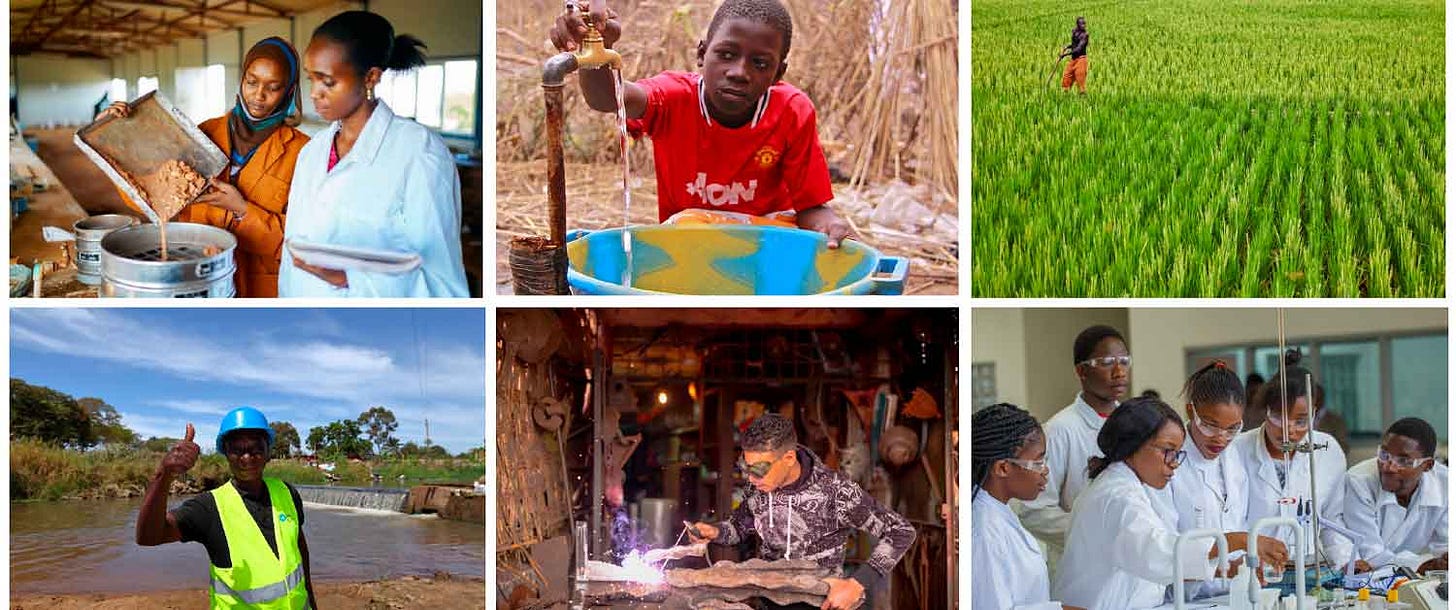Green Bonds for African Sustainable Development?
Africa's development will inevitably need to be re-imagined in a world with renewed climate priorities. Green and social bonds may become important tools to finance our transition pathways.
The African Development Bank issued a green bond on the 2nd of March 2023, due in March of 2028, worth 1 billion Norwegian krone (NOK). This follows successful issuances in US Dollars, Swedish Krona and Australian dollars since it established a Green Bond Framework in 2013. In 2019 and 2021, the AfDB issued three social bonds on the Norwegian krone market. I thought this latest issuance presented a good opportunity to discuss green bonds and the AfDB’s Green Bond Framework as tools to finance Africa’s sustainable development.
Green bonds are fixed-income financial instruments that are used to raise capital to finance projects that have a positive impact on the environment or climate. The proceeds of a green bond issuance are earmarked for use in projects that have been designated as environmentally friendly, such as renewable energy, energy efficiency, green buildings, sustainable forestry, clean transportation, sustainable agriculture, and pollution prevention, among others.
Green bonds work like traditional bonds, with the issuer borrowing money from investors at a fixed or floating interest rate over a specified period of time. The issuer promises to repay the principal amount of the bond at maturity, along with the interest payments due during the life of the bond. However, unlike traditional bonds, green bonds are specifically used to finance projects that have a positive impact on the environment or climate.
Green bonds are typically issued by governments, development banks, and corporations seeking to raise capital for sustainable projects. The issuer of a green bond must provide investors with information on the environmental benefits of the project being financed, as well as information on the use of the proceeds and the impact of the project.
According to a report by REGLOBAL, South Africa is in a unique position among emerging markets because it has a developed and large capital market with frequent bond issuers to benefit from what it is still a good time to finance a green economy. However, South Africa is also limited by its capacity to take on debt in many respects.
Green bonds offer a competitive advantage at a time of instability – with the South Africa economy seen by global credit rating agencies and some international investors as unstable, green bonds represent a possible competitive advantage to access a large pool of international investors focused on green.
Green bonds can demonstrate evidence of credible transitions to international investors who are decarbonising their portfolios in line with the goals of the Paris Agreement.
Asset-backed green bonds can reduce debt burdens and attract international capital by securing them against assets with low stranded asset risk such as renewable energy and separating them from balance sheets of entities that are exposed to high stranded asset risk and unable to access international capital.
The African Development Bank's Green Bond Framework is designed to finance projects that have a positive environmental impact in Africa. Here are some key features of the framework:
Eligible projects: The bank's green bonds finance projects in sectors such as renewable energy, energy efficiency, sustainable forestry, agriculture, and water resource management, among others.
Certification: The bank's green bond framework is certified by the Climate Bonds Initiative, an international organization that sets standards for green bond issuance.
Reporting: The bank provides annual reporting on the use of proceeds from its green bond issuances and the environmental impact of the projects financed.
Recent issuances: In March 2021, the African Development Bank issued a $3 billion "Fight Covid-19" social bond and a $2 billion "Fight Covid-19" sustainable bond, both of which are aligned with the bank's green bond framework. In June 2020, the bank issued a €1 billion green bond, which was the first-ever green bond issued by an African supranational organization.
Overall, the African Development Bank's Green Bond Framework and recent issuances demonstrate the bank's commitment to financing sustainable projects that address climate change and other environmental challenges in Africa.
Africa’s development will inevitably have to be re-imagined in light of the Paris Agreement and the very real physical and transition risks we face because of climate change. Green and Sustainability-linked financial instruments become an important tool to finance transition pathways that meet Africa’s developmental needs in world with renewed climate priorities.







